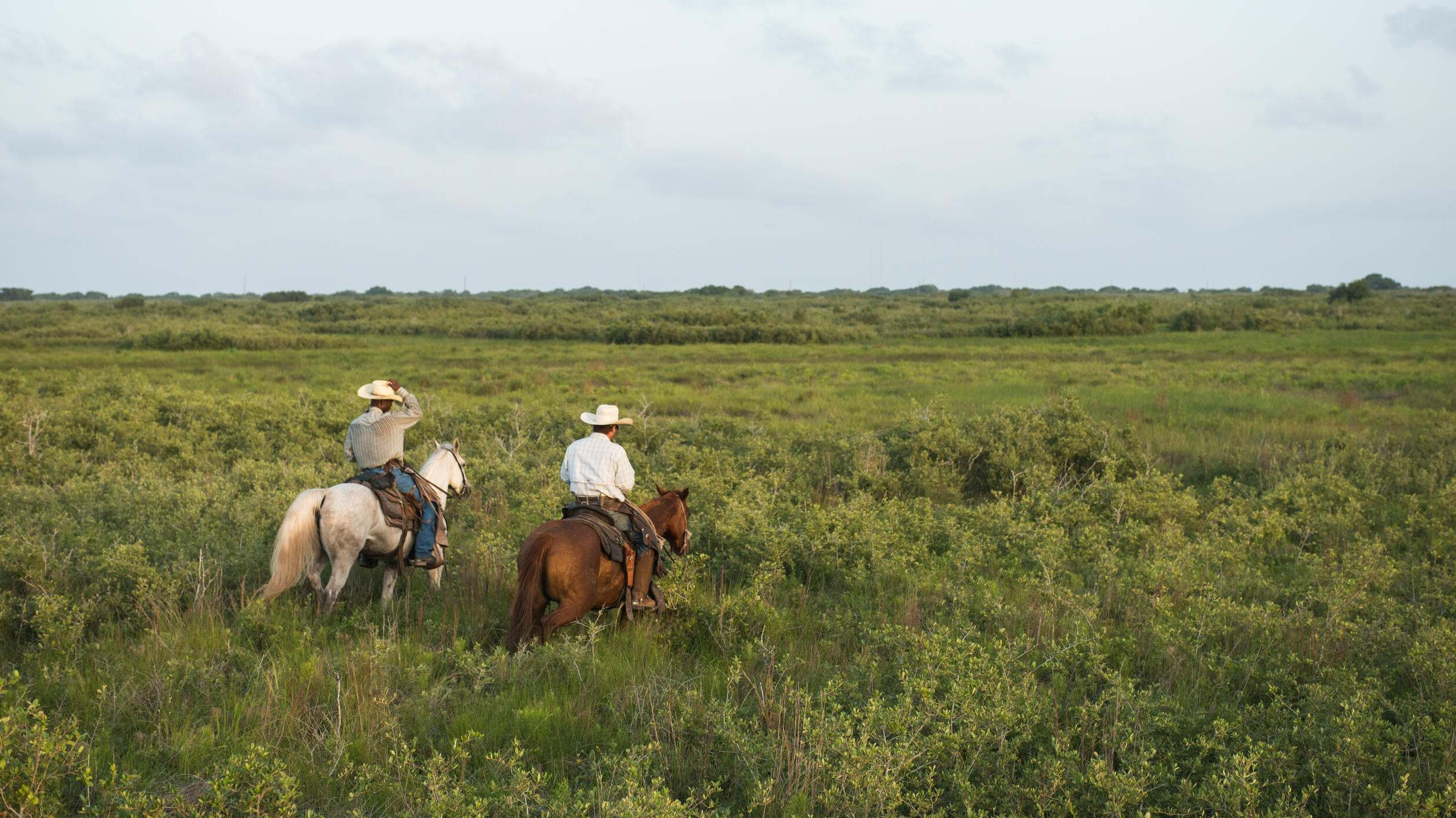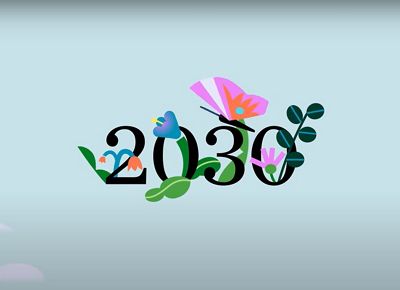
Forest Canopy The view from the canopy in Brazil's Atlantic Forest. The Nature Conservancy works to protect and restore this highly fragmented yet incredibly biodiverse tropical forest. © José Furlan Pissol /TNC Photo Contest 2019
Air, water, food, shelter, income: nature sustains every aspect of our lives.
That's why protecting and conserving nature isn't just a matter of common sense. It's the smartest investment we can make.
And the benefits? Our safety. Our health. Our jobs. Our way of life.

Nature Is Everything.
Nature puts food on our tables.
Fishers need clean water and habitats to catch our food—and farmers and ranchers need healthy soil and water to grow it. What’s more, 75% of all crops rely on insects like bees and butterflies to reproduce.
Whether it’s planting hearty, drought-tolerant crops in Arizona or helping healthy pasture regrow on a Kansas ranch, family farmers are finding ways to grow food while conserving the nature they all need.
.jpg?crop=0%2C0%2C3542%2C2657&wid=400&hei=300&scl=8.856666666666667)
Nature filters the water we drink.
For anyone who loves to hunt, fish or just spend time outside, wetlands and forests are the place to be. Even better—they also keep our water clean. For example, a wetland can filter out as much as 90% of sediments and harmful pollutants.
From the headwaters of the Mississippi River to the mountains of Cape Town, communities are securing healthy water at the source for everyone downstream.
Nature cleans the air we breathe.
Trees filter pollution from the air and can help reduce risk of chronic illness, including heart disease, cancer and diabetes.
For example, research in Louisville, Kentucky has demonstrated that planting trees produced measurable health benefits for nearby residents, demonstrating the power of trees to directly improve our lives.
Nature protects us from natural disasters.
Marshes, mangroves, wetlands and reefs can absorb flooding and protect coastlines from violent waves and supercharged storms. For every $1 spent to restore wetlands and reefs, communities get $7 back in benefits from less flooding.
Healthy wetlands along New Jersey’s coast prevented $625 million in property damage from Hurricane Sandy’s devastation, while restored mangrove forests are protecting communities in Florida and around the world.
Nature powers our livelihoods.
Nature creates $44 trillion in value for businesses like farming, fishing, shipping and tourism—that’s more than half of the entire global economy. And in the U.S., outdoor activities we love like wildlife viewing, boating and hiking support 4.3 million American jobs.
Through sustainable logging practices in Borneo and reef restoration that supports tourism in Belize, local communities are finding ways to protect the nature their economies rely on.
Nature protects our health.
From the depths of the rainforest to the wonders of coral reefs, nature’s diversity supplies more than 40% of the medicines we rely on.
Former U.S. Senator, Heart and Lung Transplant Surgeon and TNC Board Chair Bill Frist learned this firsthand when a medication derived from a Norwegian fungus finally made lung transplants possible.
At Risk: Our Food, Our Security, Our Incomes
-
50%
Half of all people on Earth live in places where clean drinking water supply is threatened—risking their health, food and security.
-
$38 T
Storms, floods, drought and fire could cost the global economy $38 trillion annually by 2050. The 2025 fires in Los Angeles alone cost as much as $250 billion.
-
1 M
We can’t farm without insects. We can’t fish without reefs. But they’re both part of the more than 1 million species facing extinction within the next few decades.
-
83%
We’ve lost 83% of freshwater plants and animals in the past 50 years by polluting, overusing and disconnecting fresh water.
When we strengthen nature, nature strengthens us.
Working with partners all over the world, The Nature Conservancy is preserving lands as vast as continents, safeguarding our waters, bringing life back from the brink of loss, harnessing the power of science, honoring the wisdom of cultures and supporting the courage of communities.
Driving Results Together
-
At our over 840 U.S. preserves, 2.9 million people hike, hunt, birdwatch and connect with nature every year.
More than 6,000 bison roam across 12 of our preserves in the United States. These titans of North America keep grasslands healthy and inspire awe in all who visit.
-
We work in 81 countries and territories, and all 50 U.S. states, to support communities that depend on—and love—the natural world.
Our relationships across states and party lines have helped secure bipartisan support for nature-based legislation that supports the future of U.S. farmers.
-
From awe-inspiring forests to iconic grasslands, we’ve protected 125 million acres of lands that support our economies, our hobbies and our way of life since 1951—an area nearly the size of Texas.
Working alongside policymakers and local herding communities, we secured a plan to protect 30% of Mongolia—from its wide-open steppe to its wetlands and rivers.
-
Around the world, we work on nearly 400 freshwater projects across 37 countries that protect communities from flooding and drought, restore habitats and keep our drinking water clean.
We’re helping leaders in the Western Balkans protect the wild rivers in their communities as part of a region-wide conservation campaign organized by us and our partners.
-
By conserving 280 million acres of ocean area globally, we’re helping support the many people around the world who depend on fish for their food and livelihoods.
For example, we’re working with the government of Barbados to protect its waters—and the fishing and tourism that support the island nation’s economy.

The Nature Conservancy’s Goals
Everything we do to save nature today helps us save more of our shared tomorrow. That’s why we’re working on achieving the biggest goals in our history by the end of this decade.
Together, We Find a Way.
If our many decades of work and experience have taught us one thing, it’s that together, we find a way. And together, we must continue to preserve the nature we depend on each and every day—for our cities and small towns, our communities and neighbors, our friends and families, and our children, grandchildren and all the future generations inheriting this one-of-a-kind planet.




